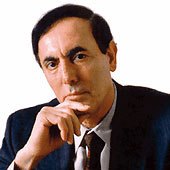Albania Must Choose Between the EU and Turkey
Turkey’s President views the Balkan countries as easy prey. A close-up look at Albania’s future path.
May 19, 2018
Turkey’s President Erdogan loves acting out the role of “Sultan” of an illusionary Ottoman Empire. That is why he has been targeting the Balkan countries, which he views as easy prey, for the past several years.
Under the guise of cultural cooperation, he is determined to coopt them into his sphere of influence by spreading his Islamic agenda. In pursuit of that goal, Erdogan is investing heavily in these countries’ infrastructure and religious institutions.
A year ago, Erdogan proudly stated in an interview for the Albanian TV station “Top Channel” that Turkey has invested three billion euros in Albania. “I don’t know how many investments have arrived from the EU, but ours will not stop.”
Turkey vs. the EU
Enticing as that sounds, the Balkan states must realize the trade-offs involved. Their prospects for economic growth, prosperity, freedom and sustainable democracy rest on close association with the EU, not with a ruthless dictator who presents himself as a savior for the Balkans.
The Western Balkan countries have been seeking long-lasting relations with the EU in their efforts to join the European Union. In the new enlargement package which the European Commission has recommended, Albania will be the first of those countries to start accession talks.
That move only hardens Turkey’s determination to flex its economic muscles to lure Albania and other Balkan states into its own geostrategic orbit.
Turkey’s investments in Albania are selective and strategically calculated. They include ownership of the country’s second-largest bank, hydropower plants, an iron smelting plant, as well as the former state-owned telecom operator “Albtelecom” and the mobile operator “Eagle Mobile.”
Erdogan’s intent is to provide Albania small doses of economic development until the country finally succumbs to his charms.
However, if Albania is looking towards the European Union, as it officially states, it must be careful what it wishes for. It should not allow Erdogan to dominate the country.
The EU will not admit any new member into the European Union that is deeply wedded to Erdogan, especially now that his naked desire to dominate the Balkans is clear for all to see.
This does not seem to worry Albania’s Prime Minister Edi Rama. Known for his close relations with Erdogan, he was the only leader from Europe to attend Erdogan’s daughter’s wedding. He is now negotiating the construction of a tourist airport in Vlora, 140km south of the capital Tirana.
Albania’s secular traditions
Despite various changes in its political systems, Albania has been a secular state since its founding in 1912. After independence, the democratic, monarchic and later on the totalitarian communist regimes followed a path of the systematic secularization of national culture.
To counteract that, Erdogan in 2015 inaugurated the Grand Mosque “Namazgja,” which is the largest mosque in Albania and was financed by Turkey’s Presidency of Religious Affairs (Diyanet). This was clear proof of Erdogan’s unambiguous Islamic agenda in Albania.
This makes it all the more puzzling that Albania’s Minister of Foreign Affairs Ditmir Bushati claimed during a recent visit to New York that “It is not true that Turkey has built the largest mosque in in Albania, and that the mosque was built for Muslim needs.” When pressed, he also refused to admit that dozens of new mosques that were financed by Turkey are now operating in Albania.
Flirting with Erdogan
Xhemal Ahmeti, A historian and philosopher who wrote a treatise for the Albanian government entitled “Saving the Albanian culture from the Turkish tendencies,” argues that, right after the Albanian government, Erdogan plays the strongest role in Albania.
He also worries about the lack of open criticism of Turkey in the Albanian media. “With this policy, Albania closes every gateway to the West.”
He suggests that Albania should take concrete steps to protect itself against Salafism and “Erdoganism.” As it stands, Erdogan’s instructors, emissaries and ideologues infiltrate political parties, academic associations and mosques in Albania, Kosovo, Macedonia and other Balkan states.
Faced with this onslaught, the EU is well-advised to make it clear that full adherence to its charter, especially regarding human rights, freedom and a democratic form of government, are prerequisites to EU membership.
If Albania continues to cozy up to Erdogan, the door to EU membership will close.
Takeaways
Turkey’s President views the Balkan countries as easy prey. Under the guise of cultural cooperation, he is determined to coopt them into his sphere of influence.
The Balkan states must realize that their prospects for economic growth, prosperity, freedom and sustainable democracy rest on close association with the EU, not Turkey.
Despite various changes in its political systems, Albania has been a secular state since its founding in 1912.
If Albania continues to cozy up to Erdogan, the door to EU membership will close.
Read previous
Global Autocracy
Trump’s Stalinist Roots
May 18, 2018
